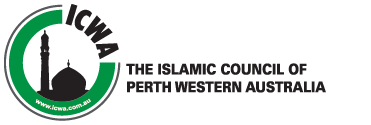This might involve engaging in therapy focused on cognitive-behavioral strategies, attending support groups, or adopting mindfulness practices to enhance self-awareness. These adjustments can foster resilience and create a more robust framework for ongoing recovery. The best way to handle a relapse is to take quick action to seek help, whether it’s intensifying support from family, friends, and peers or entering a treatment program.
The Benefits of Holistic Therapies in Mental Health Treatment
Many addiction treatment programs offer alternatives to 12-Step methodology for those who prefer a more secular foundation for treatment. By providing options for recovery, individuals can choose the approaches that resonate with their needs and preferences. This inclusivity fosters a sense of empowerment, encouraging active participation in the recovery process.
Outpatient vs Intensive Outpatient Programs
She has a strong work ethic and it’s not unusual for her to be up at the facility at 2am or on the phone all night helping guide our staff on how to best manage whatever situations come up. Group therapy is a big part of the 12-step program of AA because it’s peer to peer support based on shared experiences of addiction. This helps with feelings of community and accountability – two key components to long term sobriety. Addiction recovery is the process of medical and psychotherapeutic treatment for alcohol or drug addiction. What recovery looks like can vary from person to person and depends on factors like age, background, substance of choice, and existing mental health issues. In most cases, the journey to recovery starts by being open to change.
Addiction develops over time, in response to repeated substance use, as the action of drugs changes the way the brain responds to rewards and disables the ability to control desire for the drug. Tim is an experienced and talented administrator and director http://www.spomeniteni.org/international-covenant-on-civil-and-political-rights.html of mental health and addiction treatment facilities. Tim also spent several years as CEO to Eric Clapton’s facility in the Caribbean, Crossroads of Antigua. Since working for Elevate, I’ve continued to develop skills related to linear thinking and problem solving, which have contributed to streamlining operations and successful risk management.
Families Suffer from Alcohol Abuse
What behaviors and patterns have kept you in a cycle of substance use? These questions can be different for everyone, but these should be asked before, during, and after recovery. For individuals who wish to become sober, admitting they need help is often one of the hardest parts of the entire process. Those of us in recovery know what it’s like to worry that others will judge us based on past decisions, but the benefits of a life in recovery are too important to continue living a life in addiction.
Emphasizing Aftercare and Relapse Prevention
Those who help others not only help others but also themselves in the process, creating a culture of empathy and collective resilience. For those on this path, recognising an authority greater than themselves catalyses their spiritual growth and progress. It’s about surrendering to something beyond human capability that aligns with the program for personal transformation. Admitting you are powerless over addiction and the chaos in your life is the first step of the 12-step recovery process.
Opiate Addiction and Mental Health: The Connection
- Each step, from realizing the problem to fighting relapses, is key for lasting recovery24.
- Choosing to enter treatment or begin any kind of substance abuse recovery program can be scary, but it is an important step in changing one’s life.
- Staying motivated helps to connect with groups that understand and support you.
- Another vital element of care during recovery is relapse prevention—learning specific strategies for dealing with cravings, stress, setbacks, difficult situations, and other predictable challenges.
- Consistently following this plan provides structure and guidance, helping individuals navigate the challenges that may arise post-treatment.
However, with enough time and therapy, people with addiction can heal and thrive despite the trauma of addiction. The action stage can often be the most stressful part of addiction recovery. Preparation is over, and real change begins to happen, whether that’s through entering a rehab program or quitting on their own. As the name would suggest, people in the contemplation stage are beginning to consider that they have a substance abuse issue or are considering cutting down or moderating their alcohol or drug use. Engagement in ongoing care post-program, be it through support groups like Alcoholics Anonymous or follow-up therapy, is crucial to sustain recovery progress and build a solid support network.
Why Does Everyone Tell Me I Need Drug Rehab?
It emphasizes that addiction recovery is a long-term process that often requires patience and support. A large part of recovery is the personal growth a person will experience. 12-step meetings and addiction rehab are critical components for recovery because they provide the framework for a person to experience that growth. Going through a 12-step recovery program can be incredibly useful for people trying to get sober.
Over time, reward circuits regain sensitivity to respond to normal pleasures and to motivate pursuit of everyday activities. Areas of executive function regain capacity for impulse control, self-regulation, and decision-making. The Diagnostic and Statistical Manual of Mental Disorders (DSM) avoids the terms addiction and recovery. Sustained remission is applied when, after 12 https://www.linautilus.com/lincoln_nautilus_fuel_and_refueling_precautions-1046.html months or more, a substance is no longer used and no longer produces negative life consequences.
